Global Governance
Your Present Location: PROGRAMS> Global Governance-
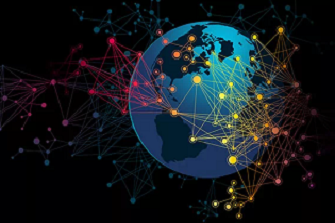
Wang Wen: Eastern mind-set foretells global future
The theme of this years' Raisina Dialogue is quite postmodern - "21@20: Navigating the Alpha Century." What does it mean? There is no explanation in the agenda. But according to the theme of each panel discussion, I assume the organizers of the forum might think the year 2020 is the starting point of the 21st century and marks the end of the 20th century, and what's coming next will be like the first letter of the Greek alphabet - Alpha - which signals a new era.It is a theme designed with oriental imagination. It wisely responds to the global logic that has been misled by Western mind-set for 30 years.
2020-01-14 -

Liu Zongyi: Egalitarian security architecture can help stabilize South Asia
In 2019, there were major changes in the traditional and non-traditional security situation of South Asia. Tensions between India and Pakistan over Kashmir continued and the possibility of an armed clash remained quite high. The geostrategic confrontations in South Asia and the Indian Ocean region are intensifying.The situation in Afghanistan is deteriorating.Overall, the security situation in South Asia is getting worse, which does not bode well for the region's economic development. But there are mainly three possible solutions to improve the situation.
2020-01-13 -

2020: A year of milestone significance for China
On New Year's Eve, Chinese President Xi Jinping delivered his annual speech, reviewing the country's accomplishments in 2019 and sending his wishes for 2020.President Xi called 2020 as "a year of milestone significance," as China is set to eliminate poverty, finish building a moderately prosperous society in all respects and realize its first centenary goal. China will remain open to the outside world and continue to join hands with countries across the globe to promote the construction of a community with a shared future for mankind.
2020-01-09 -
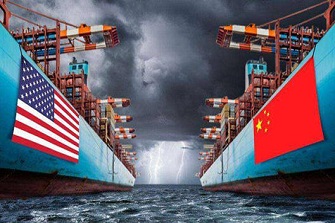
Zhao Minghao: Toward Philosophical Coexistence
China and the United States will sign a phase one trade deal this month, an important step forward in their attempts to ease tensions. Their trade negotiation teams have made great efforts to this end. Needless to say, responses to the agreement have been mixed, and there are some criticisms both in the United States and China. However, this only shows that the final agreement has a certain balance, and it definitely cannot satisfy everyone. The two sides have achieved a necessary compromise.
2020-01-08 -

Zhao Minghao: Toward Philosophical Coexistence
China and the United States will sign a phase one trade deal this month, an important step forward in their attempts to ease tensions. Their trade negotiation teams have made great efforts to this end. Needless to say, responses to the agreement have been mixed, and there are some criticisms both in the United States and China. However, this only shows that the final agreement has a certain balance, and it definitely cannot satisfy everyone. The two sides have achieved a necessary compromise.
2020-01-08 -

Zhao Minghao: Toward Philosophical Coexistence
China and the United States will sign a phase one trade deal this month, an important step forward in their attempts to ease tensions. Their trade negotiation teams have made great efforts to this end. Needless to say, responses to the agreement have been mixed, and there are some criticisms both in the United States and China. However, this only shows that the final agreement has a certain balance, and it definitely cannot satisfy everyone. The two sides have achieved a necessary compromise.
2020-01-08 -
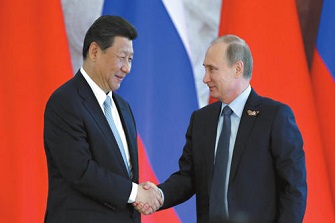
Huang Renwei: Where Are China-Russia Relations Heading?
China officially refers to its relationship with Russia as a comprehensive strategic partnership of coordination. The two countries do not simply pursue military or security cooperation but work for comprehensive cooperation, especially in economics. There are two main trends in the future development of China-Russia relations. One is that economic cooperation is becoming deeper and more comprehensive; the other is that the two countries will work to keep the international order stable in opposition to unilateralism.
2020-01-08 -
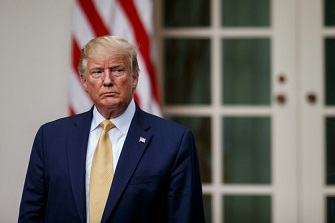
William Jones: Trump begins a slippery slope with assassination of Soleimani
U.S. President Trump's unfortunate decision to follow the advice of his neoconservative advisers to assassinate Qasem Soleimani has placed the world on the slippery slope towards war and chaos – and not only in the Middle East. While Soleimani was reviled in the West for his role in terrorism, he was highly revered by the Iranian people as a fighter for Iran going all the way back to his service in the Iran-Iraq War. Those demonstrations some weeks ago protesting the economic conditions in Iran, which Secretary of State Pompeo and others were lauding as the beginning of a more pro-Western opinion, have now been replaced by millions out in the street mourning their fallen leader.
2020-01-07 -
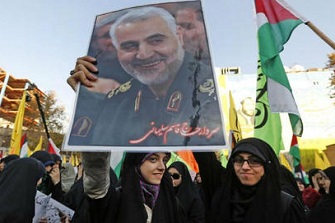
Wang Wen: Global efforts needed to restrict US adventurism
An Iranian friend of mine asked me what I thought about the killing of Qasem Soleimani, commander of Iran's elite army Islamic Revolutionary Guard Corps by a US drone strike in Iraq the day after Soleimani's death. I answered without hesitation - this is an act of state terrorism. There was no trial, no Congress authorization, no public debate, and the US simply killed a senior official of a sovereign country by arbitrary use of force and accusations from its hegemonic discourse power.
2020-01-07 -
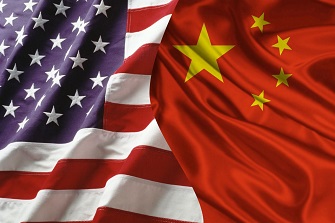
He Yafei: Major Power Competition and Cooperation
Only a few major powers exist at any given time in human history. In today’s world, probably the U.S. and China are truly major powers, followed by Russia, Japan, the European Union, India, Brazil, Turkey, Indonesia and others in different tiers. But it is the U.S.-China relationship that will primarily determine the future of the world.Competition is normal and cooperation is necessary for world peace and economic progress.Competition is normal and cooperation is necessary for world peace and economic progress.
2020-01-06 -
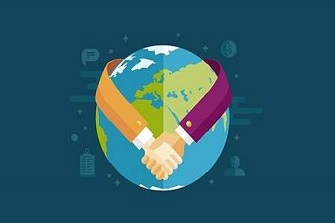
He Yafei: Partnerships, Identities and Cultural Diversity
When discussing global governance and international affairs, partnership is a word so familiar and common that many won’t even lift an eyelid upon hearing it. Nevertheless it caught global attention when President Xi Jinping proposed to establish a global network of partnerships to buttress the future system of global governance, be it related to security, economics or other things.
2019-12-20 -

Wang Wen: How China can gain from trade headwinds
"US-launched trade war against China is turning into a protracted one, but we have been prepared," Yang Jinghui, chairman of a technology company in Hongmei, a town of Dongguan in South China's Guangdong Province, told me. As over half of the products that his company makes are sold to the US, his business has been deeply influenced by the tariffs slapped by the superpower. However, what I saw was his optimism and positivity, instead of anxiety and despair.
2019-12-17 -
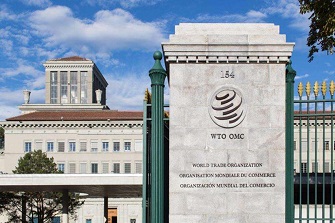
WTO’s final dispute mechanism on cliff edge
The Appellate Body, the global mechanism to settle trade disputes under the World Trade Organization (WTO), is at the edge of a cliff. As early as next Tuesday, it may lose the ability to reach a quorum and function, due to the US' obstruction of selecting new members to the body. If the body can't function, experts warn that the WTO may be paralyzed and China, the EU and all other members should work together to uphold the multilateral trade system.
2019-12-10 -
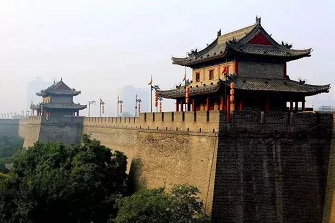
Ding Gang: China’s political system predates the West’s
An apparent problem is that plenty of Western scholars still judge China's political system by Western standards. They rank political systems in accordance with Western theories, and believe China's centralized setup lags their democratic system and must evolve into democratic one. With the expansion of Western civilization in the past five centuries, such an understanding is considered reasonable. But actually, China's system existed long before the West formed its own, and has developed in China's own way.
2019-12-05 -
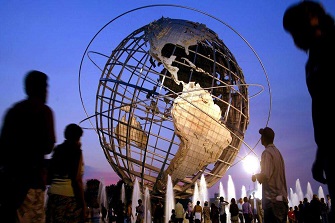
He Yafei: Decoupling and the New Globalization
With the administration of United States President Donald Trump fixated on China as a “major strategic competitor,” the U.S. strategy of “decoupling” from China is very much in vogue in American politics. The ongoing trade and tech war permeates all aspects of the multifaceted relationship between the two countries, creating — alarmingly — even more uncertainty and unpredictability in the world’s most important bilateral relationship for the foreseeable future.
2019-12-05 -
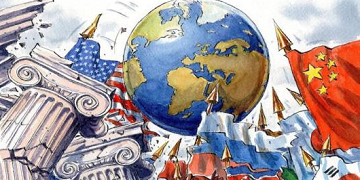
Wang Wen: What’s behind the fear to criticize the US?
"Why does no one dare to criticize the US, which is the main country engaging in unilateralism? Why is the international community at its wits' end after the US has pulled itself out of various treaties and organizations? Why doesn't the international community jointly rein in the US international power?" My three questions surprised many of those present and added a tinge of excitement to the tedious breakout session. Then, I continued, "The 2030 agenda that sets out to achieve the 17 goals including 'no poverty' and 'zero hunger' needs clear and feasible mechanism rather than just empty talk."
2019-12-03 -

He Yafei: Decoupling U.S.-China Ties Is Not An Option
2019-11-27 -
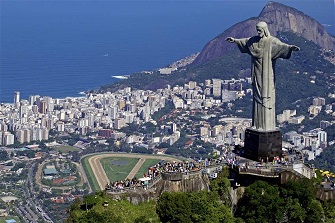
Ding Gang: Latin American woes stem from globalization
Contrary to popular belief, it is not doctrines that are dominating Latin American politics, but globalization. If we still use neoliberalism or any other concept invented by Western scholars to explain what Latin America is passing through, our understanding of the continent may not be right. We can only understand the problems of Latin American countries by observing them in an already globalized world, especially comparing them with Asian countries.
2019-11-21 -
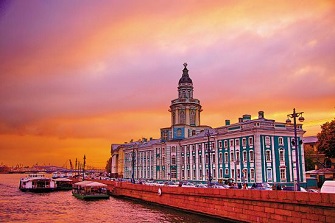
Wang Wen: Witnessing progress through wheels of time
Nevertheless, from these trips I have recognized that history is unpredictable. The transformation from glory to decay, and from unity to division is always hard to notice. The political unrest in Chile and the Hong Kong Special Administrative Region of China in 2019 has further proven this. Under such metamorphosis, China's rise has reached a moment that is the nearest to the country's great rejuvenation. The Chinese need to observe the world more carefully, remain humble and take lessons from those once powerful major countries and emerging economies.
2019-11-19 -
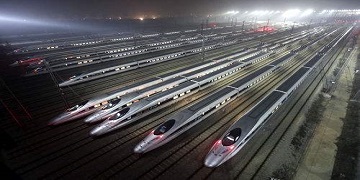
He Yafei: China Needs the World and Vice Versa
China’s view of the world can be summed up succinctly by President Xi Jinping’s remark that “the world has been undergoing the most profound changes unseen in the last century.” On China’s international engagements, my conclusion is pure and simple: China needs the world and the world also needs China. Please note carefully that I said “need,” which should not be taken to mean that some relationships are indispensable.
2019-11-18
























































































 京公网安备 11010802037854号
京公网安备 11010802037854号





